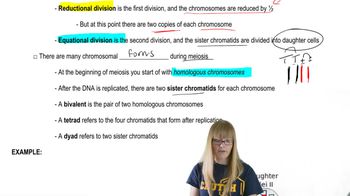Draw a diagram illustrating the alleles on homologous chromosomes for the genotypes given, assuming in each case that the genes reside on the chromosome in the order written.
DFg/DFG
 Verified step by step guidance
Verified step by step guidance Verified video answer for a similar problem:
Verified video answer for a similar problem:

